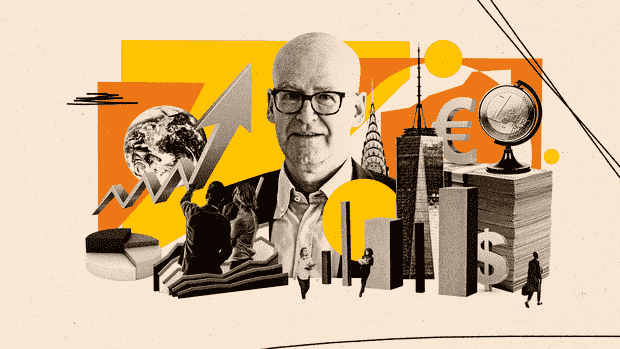Handelsblatt author Thomas Hanke analyzes interesting data and trends from all over the world in the column.
(Photo: Klawe Rzeczy)
The bad news reached Suleiman Kerimov last Thursday. The US Treasury Department froze a multi-billion dollar trust that Putin’s wealthy confidant used to manage his US assets. The blow was significant enough for US Treasury Secretary Janet Yellen to take a personal stand: “We are enforcing sanctions on those who fund and benefit from Russia’s war against Ukraine.”
Kerimov had formally withdrawn from the trust. But the government found out that he had “used various levels of US and non-US shell companies” to disguise his continued ownership.
What is happening to Kerimov, who has become rich thanks to Putin’s protection, could soon flourish for many of his peers: the Western authorities are beginning to tear up the camouflage net that has been built up over their fixed assets over decades.
The official Russian investment figures are only an approximation. In her meticulously researched book “Putin’s People”, the “Financial Times” journalist Catherine Belton estimates that the KGB secret service, with the help of its intermediaries, has moved hundreds of billions of dollars to the West. This was done partly to buy Western politicians and opinion leaders, partly to create personal wealth abroad.
Top jobs of the day
Find the best jobs now and
be notified by email.
One of the lesser-noticed passages of the Elmau G7 summit declaration is dedicated to the fight against these hidden Russian assets. The group of the seven most important western industrialized countries supports the tightened standards for the register for the transparency of beneficial ownership, which the Financial Action Task Force (FATF) presented to the industrialized countries organization OECD in March.
The West is making a turnaround in the fight against money laundering and tax havens
What sounds like a dry mouthful for financial bureaucrats actually marks a political reversal. For decades, the richest countries gathered in the OECD and G7 have resisted examining opaque shell societies. There has been progress in the fight against money laundering and tax havens since the 1990s, thanks to the OECD and the EU Commission.
“Russia’s war against Ukraine has made clear that kleptocracies pose an imminent threat to the freedom and national security of our societies.” G7 countries in their communiqué for the 2022 summit
But the investigators often only got to the core of hidden assets worth billions when insiders leaked large data sets to the media and tax authorities at considerable personal risk. The 2016 Panama Papers and the 2021 Pandora Papers revealed that behind anonymous trusts were not just petty tax fraudsters, but often Russian and Chinese politicians or billionaire entrepreneurs.
The authorities responsible for implementing the sanctions are currently trying to find out which assets the listed Russians actually own. It is about their “beneficial ownership”, the economic property often hidden behind straw men or a cascade of companies.
This laborious, case-by-case determination is to be replaced by a different approach. “Russia’s war against Ukraine has made clear that kleptocracies pose an imminent threat to the freedom and national security of our societies,” the G7 said in its communiqué. It will “accelerate work on implementing and strengthening our beneficial ownership transparency registers.”
Transparency International welcomes the tightened standards
Such registers can be a powerful weapon. If they are up to date, judicial authorities can determine at any time who the ultimate economic beneficiary of a society is. To this end, new obligations are imposed not only on financial institutions, but on every type of legal entity.
Whether it’s a real estate company on the Costa Brava or a fund in the US state of Delaware: To put it bluntly, they all have to take their pants off. In real time, they have to provide information about the true ownership or any changes thereto. Violators face severe penalties. The states should check this information with their own resources. The G7 is pushing for the standards to be implemented by the end of the year.
Transparency International, the seldom satisfied champions against corruption, welcomes the tightened norms: “This is a significant step in fighting kleptocrats and black money.”
More: Russia indirectly threatens Japanese companies with expropriation

